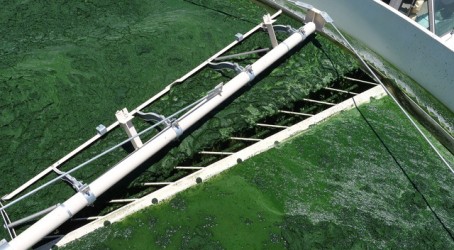Engineering news
Three aerospace and energy companies have joined forces to explore innovative solutions for alternative aviation fuels.
Aerospace giant EADS and ENN, a bio-energy company based in China, will collaborate on a multi-phase project with the ultimate aim of commercialising algae-based fuels.
In phase one the partners will collaborate on the maturity assessment of algae oil technology, testing and analysis. They will also work together on the development of tools to assess the environmental, economic and societal impacts of this technology.
The second phase, expected to commence in 2013, will see test flights taking place in China. The aircraft will use algal oil produced by ENN's pilot plant which is said to be one of the most advanced in the world.
If the second phase is successful, the partners will look at scaling-up the production process to achieve sustainable quantities of aviation fuel for flight use.
Jean Botti, EADS chief technical officer, said: “Microalgae are considered to be one of the most promising pathways for the production of biofuels for aviation. We have already proved that it is technically possible to fly with algae oil. Now we need to demonstrate that the industrial production of algae-based biofuel is ecologically and economically viable.”
Dr Zhongxue Gan, chief technical officer of ENN, said: “Sustainability is crucial to our environment and the global community. ENN, as a clean energy provider, and Airbus, as an energy consumer, have been striving to make sure that algal jet fuel can be delivered and used to reduce carbon emissions for the airline industry.
“Applying algae biotechnology to produce clean energy using industrial waste, including CO2 and waste water, is part of our carbon recycle programme. With ENN’s systematic approach, energy, environment and resources will be integrated as an ecosystem which will certainly benefit our society.”
The Airbus, EADS and ENN initiative eventually hopes to develop a sustainable aviation biofuel production capability in China.

Why algae?
Certain species of algae contain large amounts of oil and this can be extracted, processed and refined.
Microalgae reproduce rapidly and create at least 30 times more organic substance per cultivation area than, for example, rapeseed. Their cultivation does not compete with food production, and algae can be grown on poor-quality land using non-potable water or salt water.
Microalgae consume large amounts of CO2, making them a suitable possible feedstock for jet biofuel.